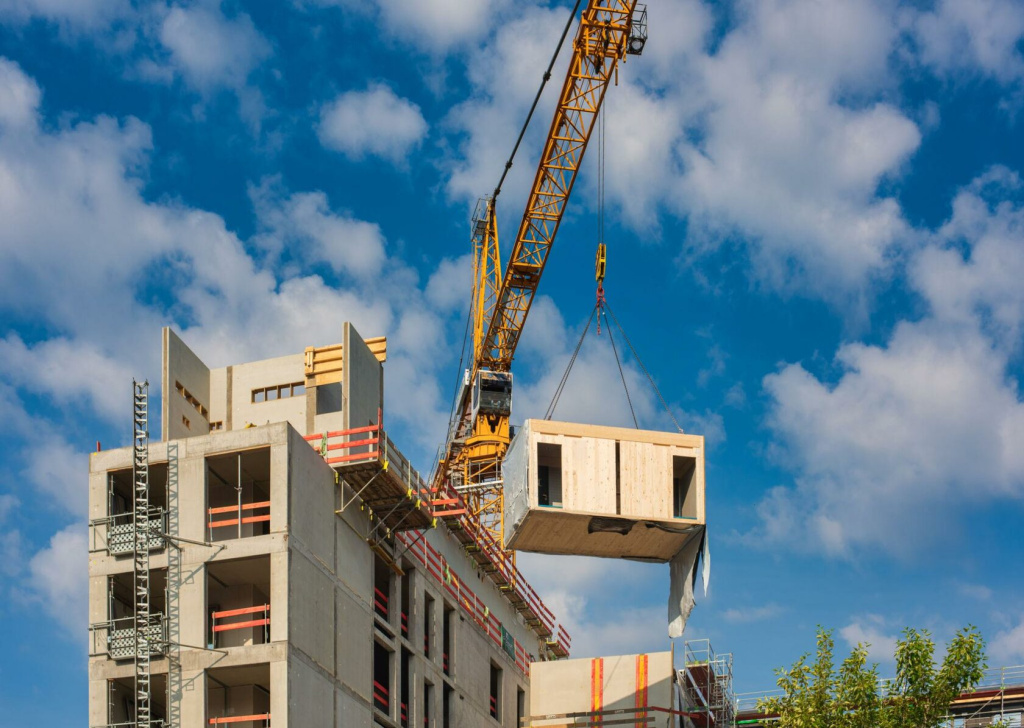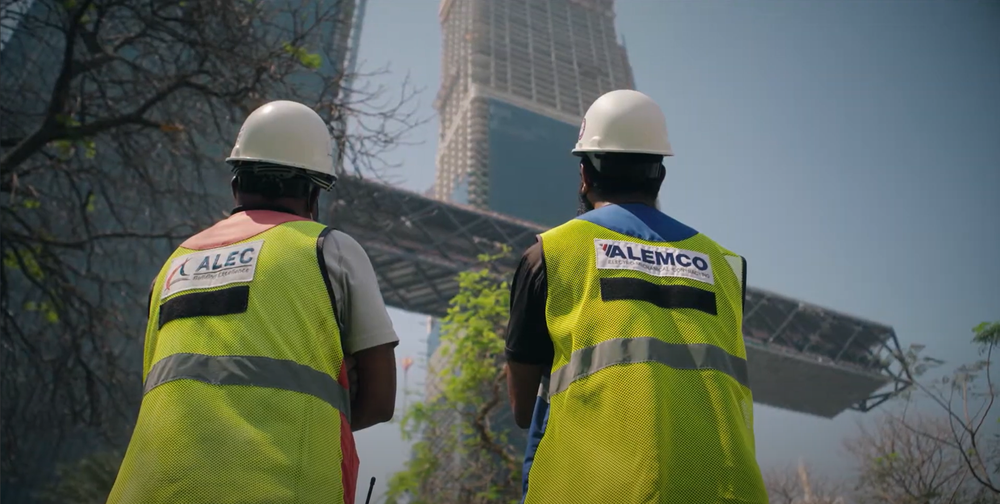With the growing emphasis on sustainability in the region, contractors and developers are increasingly embracing modular construction methods to minimize carbon emissions in their operations.
Modular construction emerges as a growing trend in the Middle East, offering enhanced efficiency through centralized process management. Employing standardized materials similar to traditional construction, modular sections maintain architectural integrity and specifications. This approach not only simplifies on-site complexities but also signifies a transition towards a smarter and more streamlined future for the Gulf's construction sector.
With the permanent modular construction industry in GCC countries surpassing USD 2.9 billion in 2020 and reaching USD 3.4 billion in 2023, continued growth is anticipated, projecting the local industry to approach nearly USD 5 billion by 2029.[?]
Modular Construction Implementation
LINQ, a Dubai-based subsidiary of ALEC Construction and Engineering, is effectively utilizing this technique.
Modular construction moves traditional building from a building site to a factory: It is a different method of making buildings. If you want to reduce carbon, if you want to go fast and if you want to go with good quality, you need to find some new methods – modular is one of them.[?]
Bashar Kayali
Managing director at ALEC Solutions
Benefits for Implementing
This type of construction also has some benefits for implementing:
-
The innovative technique moves construction to a controlled factory setting, where built elements are transported to the site for assembly, offering efficiency and sustainability benefits.
-
Embracing modular construction accelerates project timelines and enhances cost efficiency while promoting environmentally friendly practices.
-
Modular construction streamlines schedules, reduces delays, and improves coordination between disciplines, such as structure work and MEP.
-
Implementing modular construction initially incurs higher costs but delivers significant advantages, reducing liquidated damages and cost overruns associated with delays.
-
Modular construction minimizes waste through precision cutting and assembly, with off-site construction reducing waste levels to 1.8%, compared to the typical 30% waste at construction sites.
-
The controlled environment of modular construction enhances waste management efficiency, sustainability, and cost efficiency.
Challenges that Face Construction Industry
The following challenges can arise in the field of modular construction and you should be prepared for them:
-
Relying on a single company throughout execution poses a key concern for adopting modular construction. This company must demonstrate expertise and financial capacity, aligning with typical payment structures in construction.
-
A skilled workforce and infrastructure are essential for modular construction, demanding high digital literacy, collaboration, and reliable transportation. While progress has been made in infrastructure and workforce training, further developments are needed to fully meet modular construction requirements.
-
For unique designs, the standardized nature of modules may limit architectural flexibility and compliance with local regulations. Obtaining permits for modular projects may face additional scrutiny due to the method's novelty.
-
Heavy dependence on suppliers is a concern in modular construction, where disruptions or delays in the supply chain can significantly impact project timelines and financial viability.
-
Transporting modules presents logistical challenges, with size and design constraints affecting transportation via ships or trucks. Vibrations and stresses during transportation may compromise structural integrity, disrupting installation sequences.
Build a successful business in the UAE
Launch your projects effortlessly with FirstBit ERP
Request a demo
Perspectives of Modular Construction
Modular construction is increasingly gaining popularity in the Middle East as governments in the UAE and Saudi Arabia emphasize sustainability and carbon emission reduction. This approach mitigates the environmental impact of construction activities.
The regulatory framework in the region, while less intricate compared to other regions like the UK or the US, is still evolving, with efforts underway to refine building regulations specific to modular construction.
Private sector involvement in modular solutions is essential, considering the significant benefits this method offers. It's imperative that both government support and private sector engagement align to drive the adoption of modular construction and improve regulatory standards in the industry.

Anna Fischer
Construction Content Writer

See FirstBit ERP solutions in action
Discover how our system solves the unique challenges of contractors in a personalized demo.
After the demo you will get a quotation for your company.
After the demo you will get a quotation for your company.












